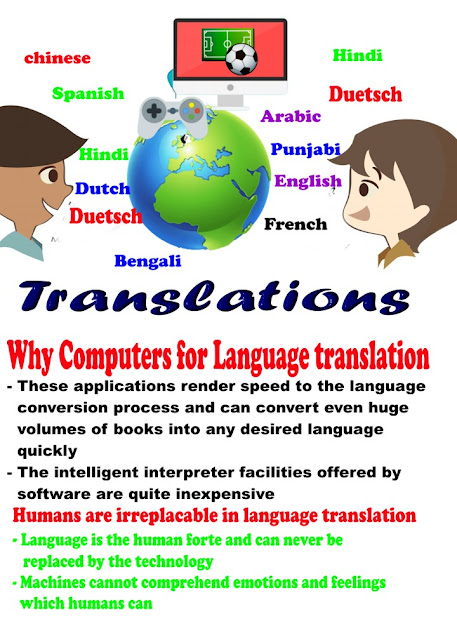Computers today can quickly and accurately translate languages, therefore, it is a waste of time to learn a foreign language.
To what extent do you agree or disagree?
The advent of computer based translators has inspired many to suggest that the days of languages are numbered, having said that, many out rightly dismiss this opinion, and suggest that machines can never supersede humans in this area. Thus, language courses shall never cease to exist.
Many, especially the tech savvy are quite upbeat about the possibilities brought forth by software-driven interpreters: these applications render speed to the language conversion process and can convert any amount of text, even huge volumes of books into any desired language, in a matter of a few minutes. In contrast, one must first study, gain and then translate, it will take them at least a few months if not years to gain sufficient capabilities to perform such tasks.
Moreover, this lobby also cites big money savings one is able to make when they use virtual translators instead of joining a course to gain lingusitic compatibilty. The intelligent interpreter facilities offered by software are quite inexpensive and cost barely anything, except nominal subscriptions, when compared to exorbitant fees and the study material required to undertake and support a foreign language study.
However, others ridicule the former opinion by suggesting that language is the human forte and can never be replaced by the technology. Every tongue, and dialect, used are driven and influenced by emotions, engendering a great variation in the meanings of the same word, phrase and expression: since machines cannot comprehend the same, humans have to rely on their own dexterity.
Overall, despite optimism about translation applications, the idea
fails to comfort me that one can forgo fostering dexterity in alien venaculars, machines can
sparingly achieve that perfection. Hence, there is hardly anything to agree
with in this statement.

